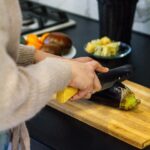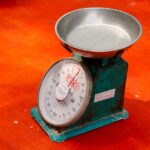Kitchen Safety 101: Essential Tips for Preventing Accidents
The kitchen is often referred to as the heart of the home. It is where delicious meals are prepared, families gather, and memories are made. However, the kitchen can also be a dangerous place if proper safety precautions are not taken. From sharp knives to hot stovetops, there are plenty of potential hazards that can lead to accidents. To ensure that your time in the kitchen is enjoyable and accident-free, follow these essential tips for preventing accidents.
1. Keep it clean and organized: A cluttered kitchen is not only inefficient but also dangerous. Make sure to keep countertops clear of unnecessary items and wipe up any spills immediately. This will prevent slips and falls, as well as reduce the risk of fires caused by flammable materials left near stovetops.
2. Use cutting boards: When chopping or slicing food, always use a cutting board to protect your countertops and knives. Avoid cutting directly on surfaces like glass or granite, as this can damage your knives and increase the likelihood of accidents.
3. Keep knives sharp: Believe it or not, dull knives are actually more dangerous than sharp ones. Dull knives require more force to cut through food, which can lead to slips and cuts. Keep your knives sharp by regularly sharpening them or taking them to a professional for maintenance.
4. Wear proper attire: Loose-fitting clothing, jewelry, and long hair can easily get caught in appliances or catch fire near stovetops. Make sure to tie back your hair, remove jewelry, and wear fitted clothing while cooking to prevent accidents.
5. Practice safe cooking habits: Never leave cooking food unattended and always use oven mitts or pot holders to handle hot dishes. Additionally, keep flammable items like dish towels and curtains away from the stove and oven to prevent fires.
6. Store chemicals properly: Cleaning supplies and other chemical products should be stored out of reach of children and pets. Make sure to read labels carefully and follow instructions for proper use to avoid accidents.
7. Use caution when handling hot liquids: When pouring or transporting hot liquids, always use a pot holder or oven mitt to protect your hands. Be mindful of steam and splashes to prevent burns.
8. Install safety devices: Make sure your kitchen is equipped with smoke alarms, fire extinguishers, and carbon monoxide detectors to quickly respond to emergencies. Check these devices regularly to ensure they are in working order.
By following these essential tips for preventing accidents in the kitchen, you can ensure a safe and enjoyable cooking experience for you and your family. Remember that safety should always be a top priority when working in the kitchen.




